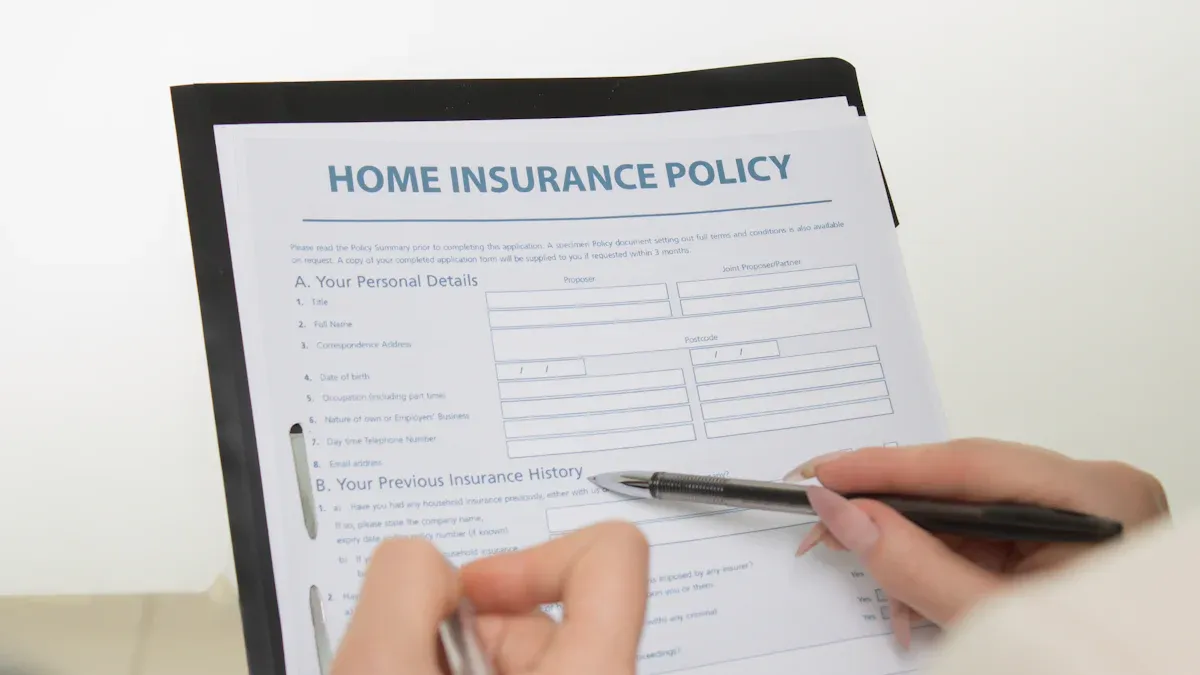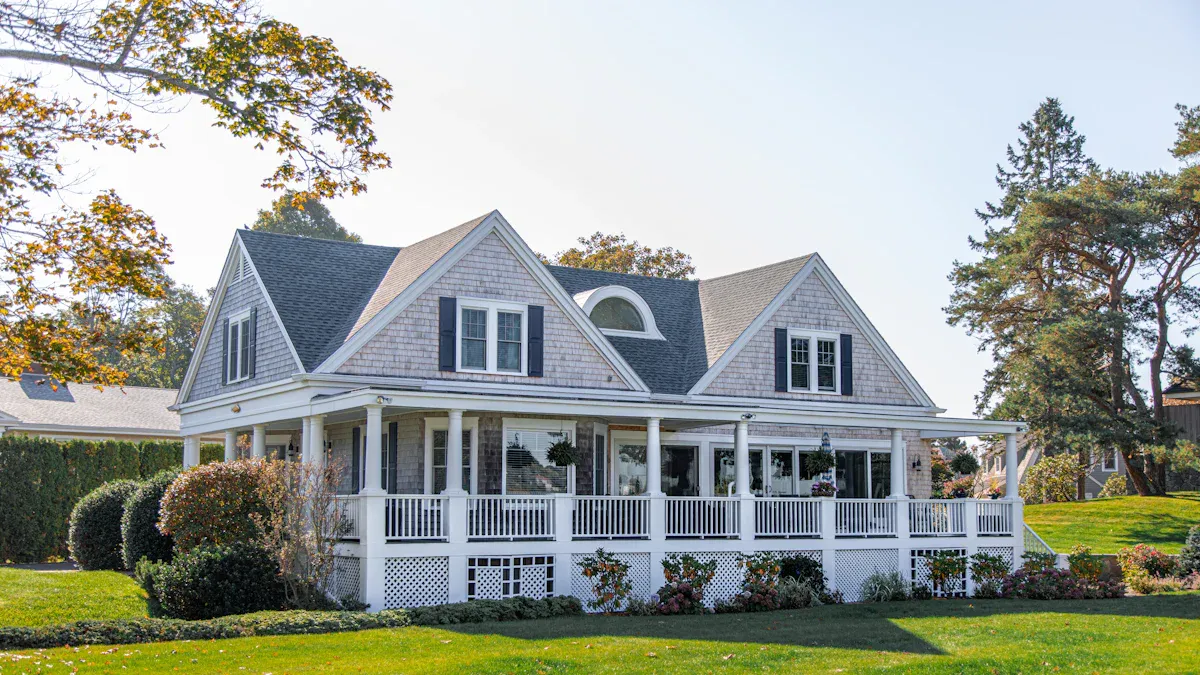
Many associations give HOA insurance policies explained: what homeowners need to know. You need to know how homeowners association insurance is different from homeowners insurance. Most associations only cover shared spaces. You protect your own unit and things with a separate home insurance policy. Knowing this helps you avoid missing coverage.
Key Takeaways
HOA insurance helps with shared places like roofs and pools, but you need your own home or condo insurance to keep your unit and things safe. Check your HOA’s master policy and your own insurance every year so you do not miss coverage or get surprise bills. Think about getting extra coverage like loss assessment insurance to help pay special fees if the HOA’s insurance is not enough.
HOA Insurance Policies Explained

What Is Homeowners Association Insurance
You might ask what homeowners association insurance is. This insurance is also called a master policy. It protects the shared spaces and things owned by your association. The main goal is to keep the community safe from losing money if there is damage, an accident, or a lawsuit. Without this insurance, the association could run out of money if it had to pay for repairs or legal problems.
Homeowners association insurance covers places everyone uses, like roofs, lobbies, pools, parking lots, and outside walls. It also gives liability protection to the association and board members. If someone gets hurt in a shared area, the insurance helps pay for medical bills or legal fees. In Bluffton, Hilton Head, Buford, and other places, these policies are very important for keeping your neighborhood safe and stable with money.
Tip: Your association’s insurance does not pay for your things or the inside of your home. You need your own home insurance or condo insurance for that.
Essential Types of Coverage
When you learn about hoa insurance policies explained: what homeowners need to know, you find several important types of coverage in a normal policy:
Property value and replacement cost coverage pays to fix or rebuild shared areas like clubhouses, pools, and tennis courts.
Commercial general liability covers injuries or damage that happen in shared spaces.
Directors and Officers (D&O) liability insurance protects board members from lawsuits about their choices.
Workers’ compensation and employee dishonesty insurance cover worker injuries and stealing by staff.
Discrimination claims coverage protects the association from lawsuits about foreclosure or actions against protected groups.
Extra coverages include personal injury (libel, slander), coverage for unit owners and managers as extra insured, and umbrella liability policies for more protection.
Insurance companies decide how much coverage is needed by looking at the value of your community’s things. They use expert property checks and think about where you live, how old the buildings are, and what they are made of. Associations in South Carolina, like Bluffton, Hilton Head, and Buford, must follow state rules that say how much insurance is needed for shared property and liability. Your monthly HOA dues usually help pay for these insurance policies. If insurance costs go up, your association may raise dues or ask for special payments.
Explanation | |
|---|---|
Higher Monthly HOA Dues | When insurance costs go up, HOAs raise monthly fees to pay for the higher costs shared by homeowners. |
Special Assessments | HOAs may ask for one-time payments to cover sudden insurance increases, which can make it harder for homeowners to pay. |
Reduced Reserve Funds | Some HOAs use savings to pay for insurance, which can hurt long-term repairs and cause legal trouble. |
Cutbacks on Services and Amenities | To save money, HOAs might cut back on services, fun things, and repairs, which can make living there less nice. |
What HOA Insurance Does Not Cover
It is important to know what your hoa insurance policy does not pay for. The master policy protects shared spaces but does not cover many things inside your home. Here are some things it leaves out:
Damage inside your unit, like drywall, floors, cabinets, and things inside your walls.
Your personal things, such as furniture, electronics, and clothes.
Liability problems inside your home, like if a guest gets hurt or your dog bites someone somewhere else.
Floods, earthquakes, and sewer backups, unless your association buys extra insurance.
Damage from old age, bad care, or slow leaks.
Problems from bad building work or mistakes by workers.
For example, if a hailstorm hurts the roof of your condo building, the association’s insurance pays to fix the roof and outside. If water leaks into your home and ruins your floor, you need your own home insurance or condo insurance to pay for it. If someone falls in the lobby, the association’s insurance pays for the injury. If someone gets hurt inside your home, your own homeowners insurance pays for it.
Note: Always look at your association’s rules and insurance papers to see what is covered and what is not. You might need extra insurance, like loss assessment, to protect yourself from big deductibles or missing coverage in the master policy.
The two-insurance system means your association covers shared areas, and you protect your home’s inside and your things. This helps stop missing coverage and keeps costs fair for everyone. In Bluffton, Hilton Head, Buford, and other places, knowing hoa insurance policies explained: what homeowners need to know helps you avoid surprises and make good choices about your insurance.
Homeowners Insurance Responsibilities

Homeowners Insurance vs HOA Insurance
It is important to know the difference between homeowners insurance and HOA insurance. The HOA master policy protects shared spaces and the outside of the building. Your own home insurance, called HO-6 or condo insurance, covers the inside of your unit and your things. If you have a single-family home in an HOA, you might need an HO-3 policy.
Here is a table that shows the main differences:
Coverage Aspect | HO-3 Policy (Single-Family Home) | HO-6 Policy (Condo) |
|---|---|---|
Property Insured | Whole house, outside, and other buildings | Only the inside of your unit (walls, floors, ceilings, fixtures) |
Dwelling Coverage | Covers most risks except some not included | Usually covers certain risks; sometimes covers most risks |
Coverage Scope | Outside, roof, other buildings, and your things | Covers inside walls, your unit, and your things |
Personal Property | Covers certain risks | Covers certain risks |
Liability Protection | Included | Included |
Cost | Costs more because it covers more | Costs less because it covers less |
Applicability | For single-family homes and some townhomes not in HOA | For condos and townhomes in HOA |
Additional Notes | Covers garages, fences, and sheds | Outside covered by the association’s master policy |
Many people in Bluffton, Hilton Head, and Buford live in places with associations. You need to know which policy is right for your home. If you own a condo, the association’s insurance covers the outside, but you need your own policy for the inside. If you own a single-family home, you need a policy that covers the whole house and any other buildings.
Note: Do not think your association’s insurance covers your things or the inside of your home. Always check your own policy and your HOA’s rules.
Avoiding Coverage Gaps
Coverage gaps can make you pay a lot of money if something bad happens. You need to make sure your homeowners insurance and your association’s policy work together. Here are some reasons why you might have coverage gaps:
The HOA master policy only covers shared spaces, not your unit or your things.
Some policies do not cover disasters like floods or earthquakes.
Expensive things, like jewelry or art, may not have enough protection.
Other buildings, like garages or sheds, may not be fully covered.
Loss assessment coverage is a helpful part of your home insurance. This extra coverage helps pay your share if the association’s insurance does not cover everything after damage or a lawsuit. For example, if a storm hurts the clubhouse and repairs cost more than the association’s insurance, the HOA may ask all homeowners to pay the extra. Loss assessment coverage helps you pay these surprise bills. It also helps if someone gets hurt in a shared space and the legal costs are more than what the association’s insurance pays.
To avoid coverage gaps, do these things:
Look at your homeowners insurance and compare it to your association’s master policy.
Make a list of your things, with photos and receipts.
Check for things your policy does not cover, like water damage or disasters.
Ask your insurance agent about extra coverage for expensive things or special risks.
Make sure you have loss assessment coverage if you live in an HOA.
Update your policy if you fix up your home or buy expensive things.
Know what your policy pays for and what it does not.
Tip: If you do not have enough insurance, you may have to pay for repairs, legal fees, or special payments yourself. This can lower your home’s value and make it harder to sell or refinance.
Reviewing Policies and Taking Action
You should check your homeowners insurance and your association’s insurance every year. This helps you keep up with changes in your community, new laws, or updates to your home. If your association adds new things or changes its insurance, you may need to change your own coverage.
Do these things to stay protected:
Read your HOA’s rules to know what the association’s insurance covers.
Check state laws for new insurance rules in Bluffton, Hilton Head, Buford, or your area.
Talk to an insurance agent who knows about HOAs and home insurance.
Keep records of any changes or upgrades to your home.
Make sure your coverage meets what your mortgage and the industry need.
Ask a lawyer if you do not understand your HOA’s rules.
Compare insurance quotes to find the best coverage for you.
Use technology to keep your home inventory organized.
If you need to file a claim, tell your HOA board or property manager first. Take photos and keep receipts. Fill out any forms your association needs. Work with both your HOA and your own insurance company to get the right coverage for your loss.
Remember: Checking your insurance often and talking to your agent helps you avoid having too little or too much insurance. This keeps you and your community safe from surprise costs.
It is important to understand how HOA insurance and your own insurance are different.
HOA Insurance | Individual Homeowners Insurance | |
|---|---|---|
Who buys? | Associations | You |
What it covers? | Shared areas | Your home, belongings, liability |
Check both insurance policies often. Talk to an expert in Bluffton, Hilton Head, or Buford if you have questions. This can help you find any missing coverage and keep your home protected.
FAQ
What does an HOA insurance policy usually cover?
The policy protects shared places like roofs, pools, and lobbies. It also helps if someone gets hurt in these areas.
Do you still need condo insurance if your HOA has a master policy?
Yes, you do. Condo insurance covers the inside of your unit and your things. The HOA master policy does not pay for your stuff or the inside of your home.
How can you check if you have enough coverage in Bluffton, Hilton Head, or Buford?
Look at your homeowners association insurance and condo insurance every year. Ask your agent if you have any missing coverage. Change your policy if you fix your home or buy something expensive.
